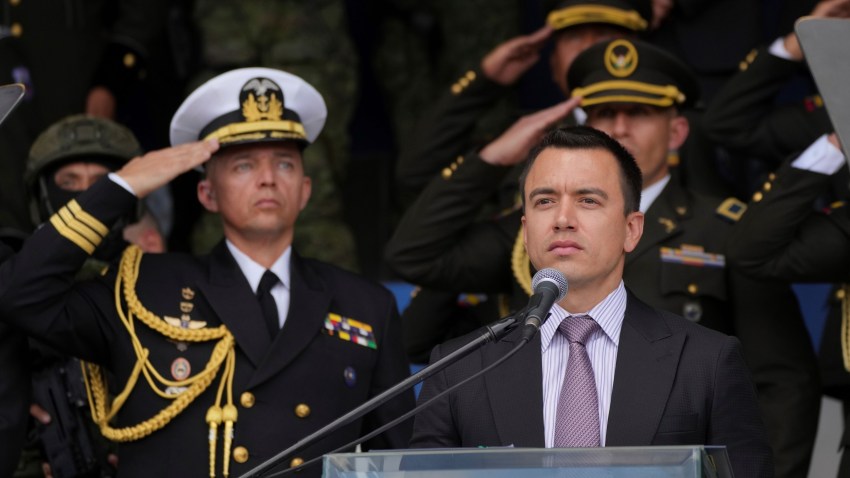The images were so shocking, it was hard to believe they were real. In the middle of a live newscast on Ecuador’s TC Television in Guayaquil earlier this month, masked gunmen broke onto the set, waving guns and explosives, shouting they had bombs and ordering the terrified journalists and studio staff—gun barrels to their heads—to drop to the floor. Astonished viewers at home could hear gunshots in the background, amid pleas of “Don’t shoot!” In the midst of all the mayhem, one of the gunmen said something about having a message for the president about not “messing with the mafia.”
Police surrounded the studio, and the 13 gang members were all arrested. Somehow, no one was injured or killed. But the drama underscored the depths of Ecuador’s grave security crisis. And it could prove pivotal for the future of Ecuador’s democracy.
That’s because, across Latin America these days, a crisis like Ecuador’s often creates the pernicious temptation to toss out democracy as the cost of regaining security. It’s a baby-and-bathwater scenario we have seen most prominently in El Salvador, a country whose democracy is gradually vanishing in what the population seems to view as an acceptable price for restoring order.

